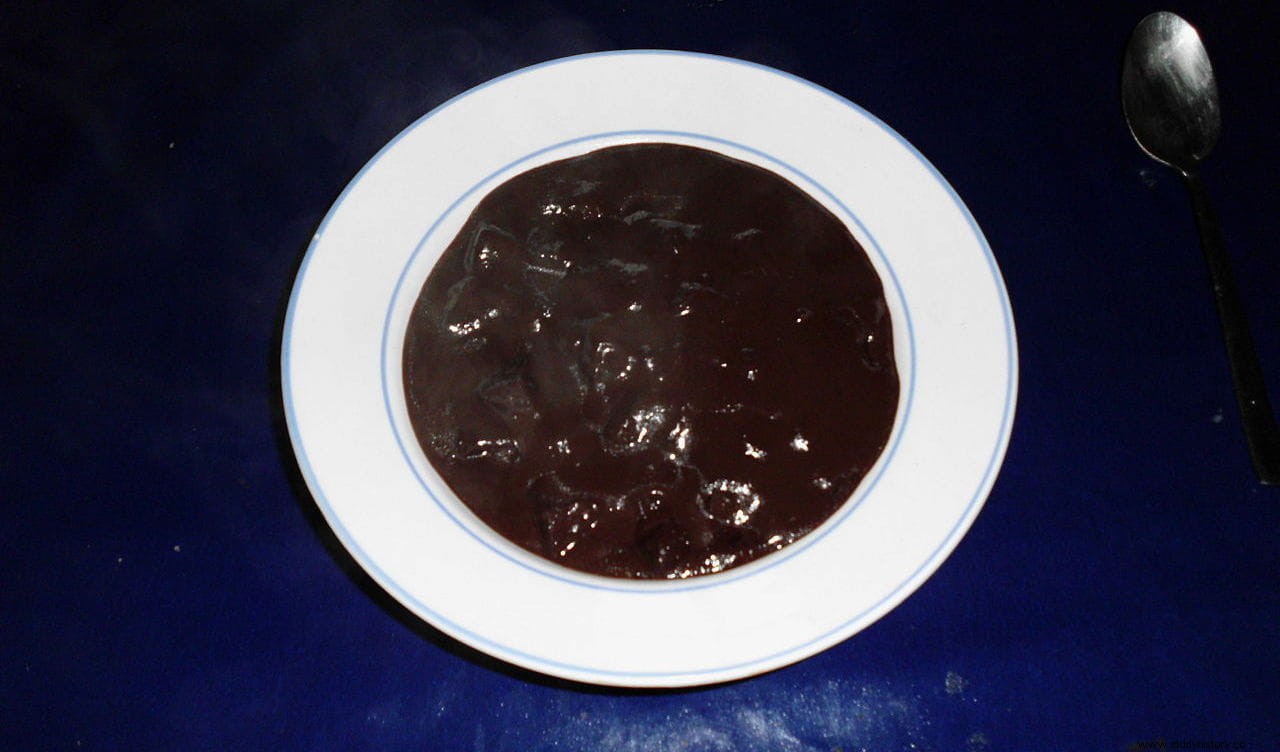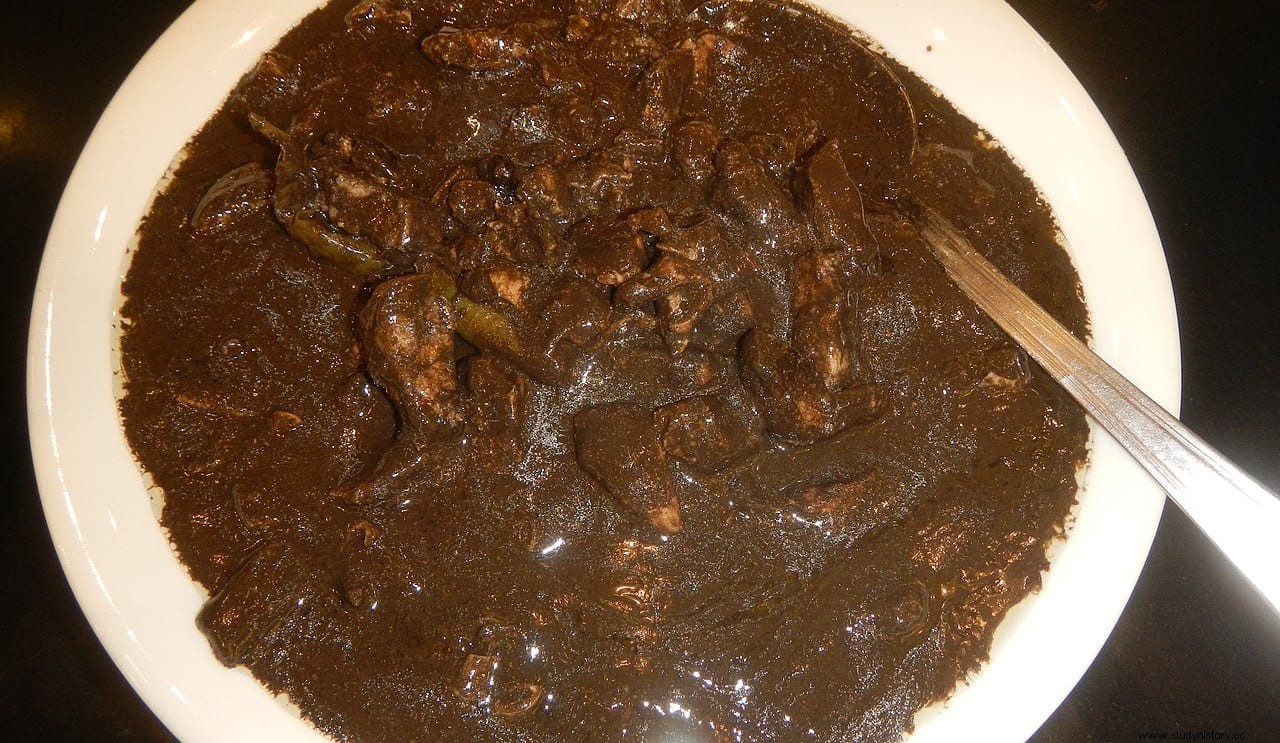If all the cuisine of ancient Greece was characterized by its frugality, derived from the difficult conditions of its agriculture, Spartan gastronomy did not have a reputation for precisely the opposite but for being even stricter and more sober. In fact, some of their dishes were so unpleasant for the rest of the Greeks that they never crossed the borders of Laconia. The Athenian comic poets, for example, used to make fun of them frequently.
The example par excellence is the Caldo Negro, one of the traditional dishes of Sparta and the fundamental basis of its gastronomy and the diet of its citizens. No recipe has been preserved that indicates the ingredients and the amounts used in its preparation. However, from descriptions of ancient sources we know that it was made up of pork meat and blood boiled with salt and vinegar, which resulted in a kind of dark soup with chunks .
The first mention of Caldo Negro is found in a comedy entitled Los miners written by the Athenian poet Ferécrates in the middle of the 5th century BC, where a woman who returns from the underworld claims that she has seen black broth flowing through the streets:

The dish, which in Greek was called μέλας ζωμός (mélas zōmós , that is, broth or black soup), is also mentioned by Plutarch in his Life of Lycurgus , the mythical lawgiver of Sparta, written in the late 1st and early 2nd centuries AD, in which he claims it was the most famous Spartan dish.
According to Plutarch, the elders limited themselves to eating broth, leaving the meat for the young. Some scholars believe this means that the pieces of meat were to be removed from the soup and served separately to Spartiates who were still of military age.
It also tells the anecdote of a king of Pontus who wanted to try the Black Broth, so he had a Spartan cook prepare it for him. He found it very unpleasant. To which the cook replied that in order to appreciate it, he must first bathe in the Eurotas River, which meant that only those who had grown up in Spartan society were able to taste it (Cicero tells the same story, but about the tyrant Dionysius of Syracuse).

The comic poet Euphron, writing in the 3rd century AD, states when he talks about some famous cooks in his work The Brothers that Caldo Negro was invented by a certain Lamprias. Even when it seems unlikely, the truth is that he cites it among others that can be traced in other sources.
Some researchers believe that the Black Broth was the main dish of the Sisitia, the collective banquet celebrated daily at dusk by the Spartans (the elite of citizens with full rights), in more or less numerous groups. Each of the diners had to pay a monthly fee with which food was bought in the market, and attendance was mandatory, as a means of strengthening and strengthening their bonds.
Others think that it was actually a modest, inexpensive dish that the poorest Spartans brought to the Sysitia. According to Hans van Wees, Black Broth should not be consumed regularly, since it involved the sacrifice of an animal. It would only be consumed when offerings were made, on the occasion of some celebration or designated day.

It is not known if Caldo Negro was also consumed by women and children in the domestic sphere or was something reserved for the banquets of adult men. There is also no evidence to indicate that the Spartans consumed it during their military campaigns.
But it is clear that eating black broth was a sign of integration into Spartan society, as Plutarch expresses when he tells how the Athenian general Alcibiades, when he fled from his family and took refuge in Sparta, tried to integrate by adopting their customs, including eating Black broth:

The Spartans themselves must have been aware that the Black Broth had a special flavor, not suitable for all palates, and that is why they did not usually offer it to foreign visitors or guests. Once again Plutarch in his Life of Agis and Cleomenes testifies to this fact:
Among the modern dishes that can resemble the Spartan Black Caldo is Dinuguan, a Filipino stew made from pork meat and blood, which is simmered and to which garlic, chili and vinegar are added. It is like a kind of blood sausage but in the form of a stew and with the appearance of black soup. And also the Schwarzsauer, a blood soup with black pudding and vinegar typical of northern Germany.
